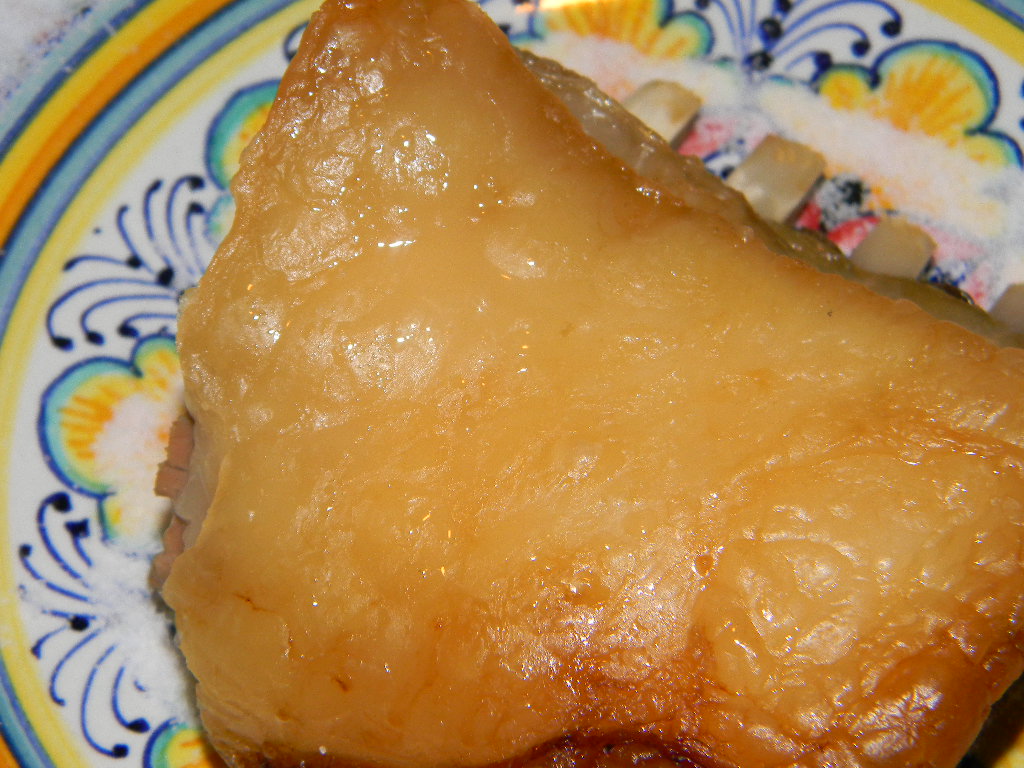Zero Carb Keto
Iodine Part 2
In yesterday's post I talked about the importance of iodine. I did more research yesterday afternoon and here are some of my findings:
1) Iodine content is not listed in the U.S. nutrition database
In order to find out the iodine content of foods, I had to use the Italian, French, and Slovak nutrition databases. I also cannot find a nutrition tracker that tracks iodine intake. I'm hoping to find a European tracker that includes it.
2) The only foods that naturally contain iodine are seafoods and sea vegetables
So although you can buy iodized salt, it does not naturally contain it. Some nutrition database list that dairy and eggs contain iodine, but that is because iodine is used to sterilize cow udders in the milking process, and because egg-laying hens are often supplemented with kelp.
3) The recommended daily amount means a fillet a day!
The recommended daily allowance of iodine is 150mcg per day. That is a fillet of saltwater fish every day! Or a sheet of nori! The information that I found said that food is a better source than supplements, since it is dangerous to take in too much iodine.
4) The oceans are a "plastic soup"
After watching two documentaries ("Plastic Paradise" and "The Garbage of the World"), my eyes were really opened to how we (me, you, all of us!) have terribly polluted all of the saltwater oceans of the world. In fact, there is a scene in the "The Garbage of the World" where they show a beach in Hawaii where the sand is not even actually sand, but little tiny pieces of plastic instead. Really shocking. They showed whales that essentially died of starvation with their stomachs bloated full of huge pieces of plastic. They also showed that fish and sea birds all had plastic in their stomachs too.
The plastic in our clothes, such as nylon, polyester, acrylic, etc., leaches out tiny plastic fibers into the water every time we wash our clothes. That gets into the water system too! Unbelieveable how much damage we have caused in such a short time.
Not only do we need to stop buying plastics, plastic clothes, and items sold in plastic, but we need to figure out how to deal with all of the millions of tons of plastic already out there!
The scientists in "The Garbage of the World" said that they tested, and every fish in a market in Singapore had bisphenol A in it. Bisphenol A is an estrogen mimicker and endocrine disruptor. Not something we want to be eating and drinking every day! But unfortunately, we are. It is now in all fish and probably in all of our water, (along with a soup of pharmaceuticals that are in our water as well!).
One gentleman in "The Garbage of the World" film put it very succinctly: "There is no 'away'," when we say we are "throwing something away".
How I Will Get Iodine
So I have to figure out how exactly I am going to get my necessary iodine, and also how I am going to track it.
Here is the French nutrition database:
Since I know that carageenan affects my gut and is derived from seaweed, I am going to assume that other seaweeds might affect my gut too. So for now I will try to stick with fish, I guess? Although they have mercury and bisphenol A in them too.
Here are the fish that contain the highest amounts of iodine (in mcg per 100g serving) according to that database:
Mackerel 285
Haddock 260
Whiting 213
Farmed salmon* (more on this topic later!) 200
Grey sea salt, no enrichment <200 (? I cannot find anything to confirm this)
Canned mussels 197
Egg yolks 192 (but they are inflammatory for me)
Mullet 190
Tuna 150
Cod 130
Remember we are trying for 150mcg per day.
The Italian database also includes:
Canned clams 140
And the Slovak database:
Plaice 205
Shrimp 130
The Spanish database:
Dogfish 260
Lobster 140
Crawfish 106
I found wild-caught Atlantic mackerel (which is already in a ketogenic ratio!) for under $6/lb at my local Asian grocery, but it comes in plastic. I went ahead and bought a pack, along with some frozen wild-caught clams, but I would like to find a good source for iodine that does not involve plastic packaging. I was thinking that perhaps the local health food market might be willing to wrap fish in paper? But it will cost more than $6/lb for sure.
Another option is canned fish, which is not as palatable, and more expensive per pound. The cans are recyclable, though. But they may contain bisphenol A!
What a mess we have gotten ourselves and the world into! We are bad neighbors!
 |
Wild caught Atlantic mackerel
|


Comments
Post a Comment